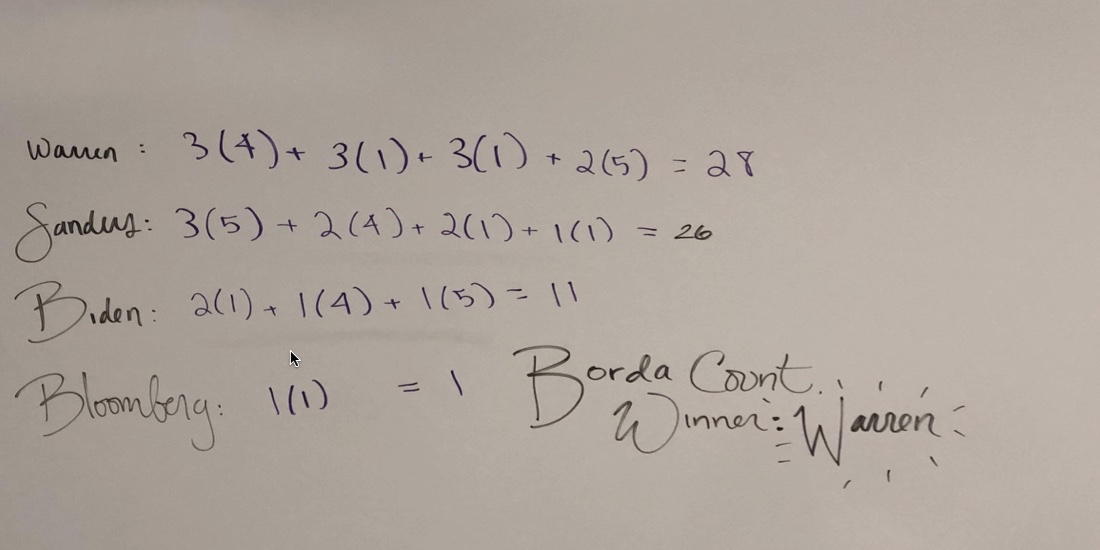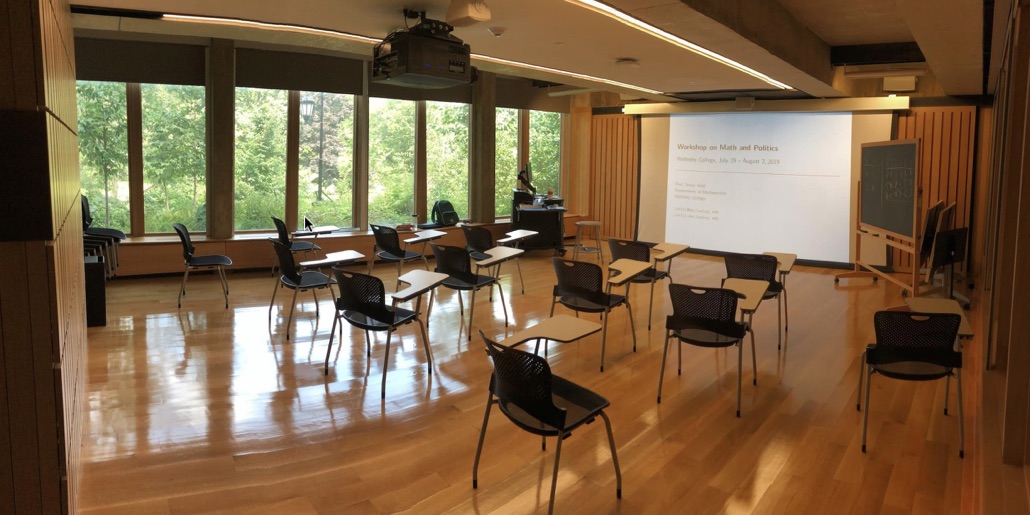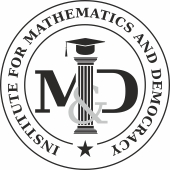Mathematics appears in scores of political contexts that college students, high-schoolers, and even younger students can understand. Subjects like voting, apportionment, and gerrymandering are accessible and perfect for transdisciplinary learning since they occupy a unique place in the intersection of mathematics, statistics, computer science, political science, economics, and history. These topics have unparalleled import on democracy while being conspicuously absent from our schools.
One of IMD’s goals is to remedy this problem. We develop curricula, train teachers, and create teaching modules that foster both political quantitative literacy and the understanding of how mathematics governs many democratic processes.
Contact us to learn how IMD can bring topics like these to your classroom:
- Mathematics of the Electoral College
- Voting – plurality, ranked choice, cardinal and other methods
- Apportionment
- Impossibility theorems
- Gerrymandering – efficiency gap and compactness scores
- Quantification of power
- Game theory – conflict, bargaining, and negotiation
- Number theory of cryptography and its regulation
- Graph theory of networks and voter manipulation
- Statistics in politics
Wellesley College offers a class in mathematics and politics
In spring 2020, Wellesley College is offering a class on Mathematics and Politics as part…
Summer workshops on mathematics and politics
In summer 2019, Wellesley College offered two weeklong workshops in mathematics and politics for high…




